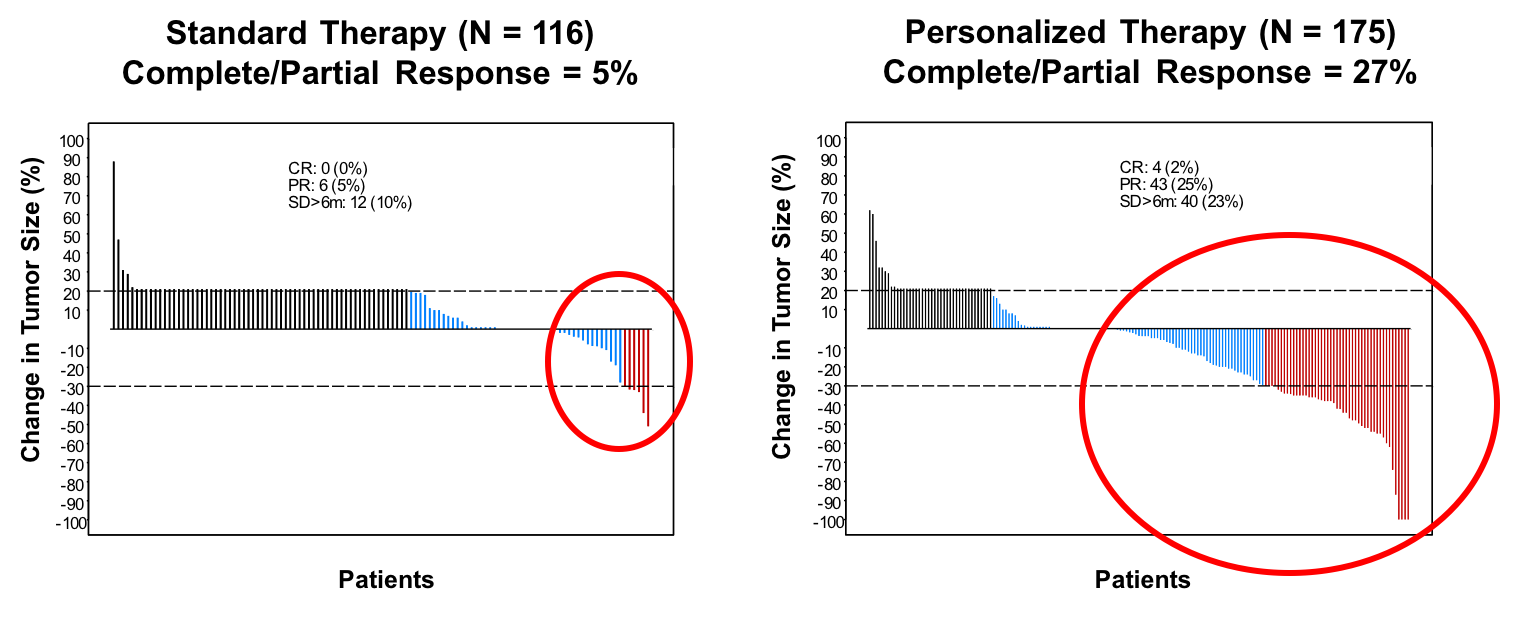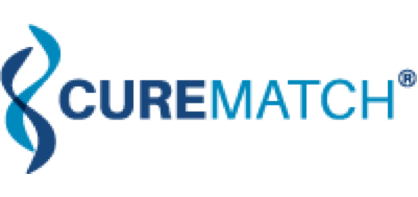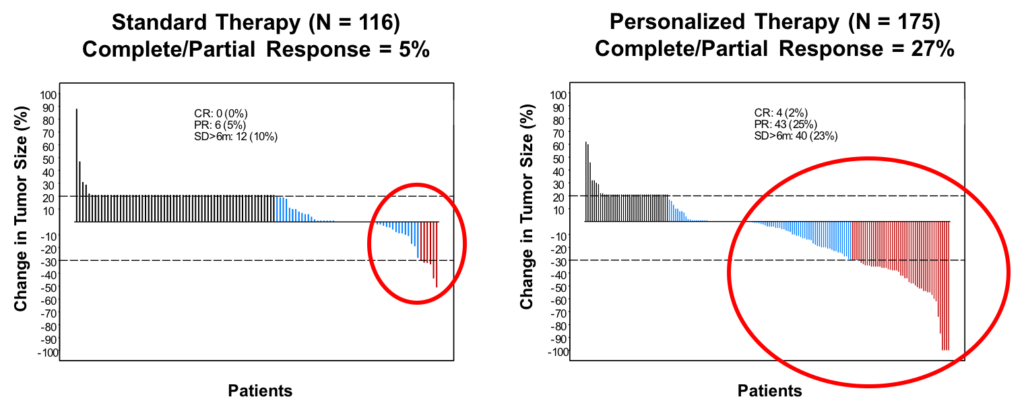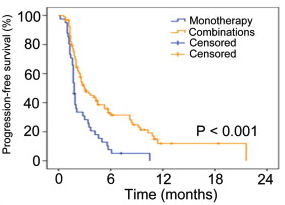Personalized Therapy Associated with Significantly Higher Response Rates
A multi-year study was performed by UCSD oncologist and CureMatch co-founder Dr. Razelle Kurzrock and colleagues, and looked at 291 patients with advanced cancers, who had received either the standard of care (n = 116) or personalized cancer therapy (n = 175). Patients treated using the standard of care, which was based on their type of cancer, had a 5% response rate to the treatment. Patients who were instead treated by matching them at the molecular level and disregarding the type of cancer had a 27% percent response rate.
These results clearly indicate that it is more important to focus on the underlying molecular abnormalities than the organ of origin, and supports the case for precision medicine. This is at the core of the CureMatch approach.

Fig. 1. Waterfall plot showing change in tumor size for patients with advanced cancers, who were given standard therapy (left) and personalized therapy (right). Patients given personalized therapy had significantly better response (P < 0.0001).
An additional finding in the study was related to the efficacy of combination therapy. The study also makes the case that the response rate is expected to be even higher with targeted combination therapies. Patients with PIK3CA mutations and/or PTEN aberrations treated with combination therapies (yellow, n = 95) compared to patients treated with single-agent therapies (blue, n = 41) had a longer median PFS (3.0 months, 95% CI 2.0–4.0 versus 1.8 months, 95% CI 1.6–2.0; p < 0.001).
Link to article in Cell Reports


